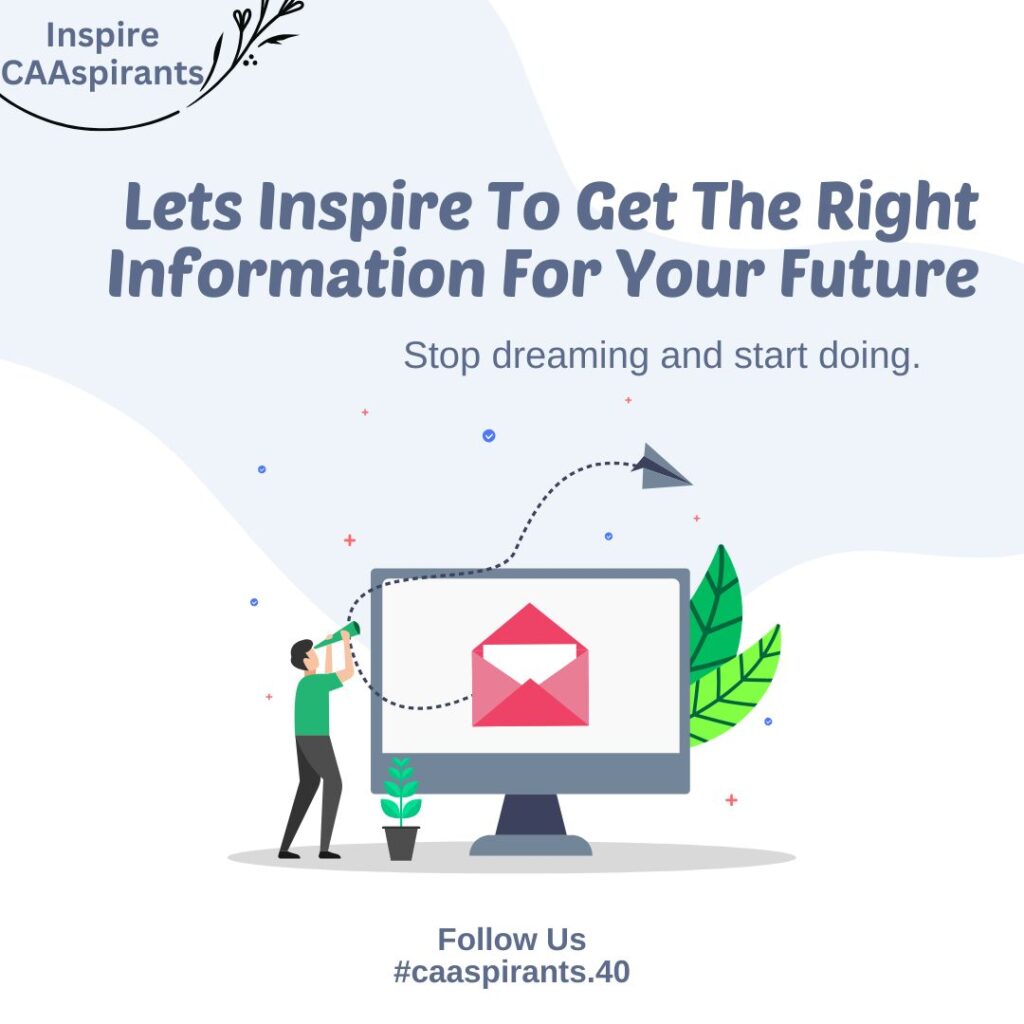CA Foundation Preparation -The CA Foundation course is the first step to becoming a Chartered Accountant in India. It’s a rigorous yet rewarding program that lays the groundwork for advanced studies in accountancy, auditing, and taxation. If you plan to take the CA Foundation exam, this blog will guide you through a detailed preparation strategy, study plan, and essential tips to ace the exam.
“Unlock unparalleled success and dominate your career path with the power, precision, and prestige of being a Chartered Accountant.”

Understanding the CA Foundation Exam
Before diving into preparation, it’s crucial to understand the structure of the CA Foundation exam:
- Subjects: The CA Foundation syllabus includes four papers:
- Principles and Practices of Accounting
- Business Laws and Business Correspondence and Reporting
- Business Mathematics, Logical Reasoning, and Statistics
- Business Economics and Business and Commercial Knowledge
- Exam Pattern:
- Paper 1 and 2 are subjective.
- Paper 3 and 4 are objective with negative marking for incorrect answers.
- Each paper carries 100 marks, making a total of 400 marks.
- The passing criteria require a minimum of 40% in each subject and an aggregate of 50% overall.
Understanding the syllabus and exam pattern is the first step to creating an effective study plan.
Creating a Structured Study Plan
1. Assess Your Starting Point
Start by evaluating your current knowledge level. Are you familiar with basic accounting concepts? How comfortable are you with mathematics or economics? This assessment will help you identify your strengths and areas needing improvement.
2. Allocate Time Effectively
A well-structured timetable is key. Divide your preparation period into three phases:
- Phase 1: Learning Spend the initial months understanding concepts and completing the syllabus.
- Phase 2: Revision Dedicate a few weeks to revising all subjects systematically.
- Phase 3: Practice and Mock Tests Reserve the last month for solving mock tests and past papers to simulate the exam environment.
3. Prioritize Subjects Based on Difficulty
If you find Business Mathematics challenging, allocate more time to it. Similarly, balance your schedule to ensure no subject is neglected.
Tips for Each Subject
1. Principles and Practices of Accounting
- Focus on Fundamentals: Understanding basic accounting principles is crucial.
- Practice Numerical Problems: This subject is calculation-intensive, so regular practice is vital.
- Refer to ICAI Study Material: The Institute of Chartered Accountants of India (ICAI) provides comprehensive study material that covers the syllabus thoroughly.
2. Business Laws and Business Correspondence and Reporting
- Understand the Laws: Memorizing is not enough; ensure you understand the application of laws.
- Practice Writing Skills: For Business Correspondence, focus on formats, tone, and clarity.
- Make Short Notes: Summarize key points and provisions for quick revision.
3. Business Mathematics, Logical Reasoning, and Statistics
- Master Basic Formulas: Keep a list of important formulas handy and revise them regularly.
- Solve Logical Reasoning Questions Daily: This section can fetch you high marks with consistent practice.
- Focus on Statistical Analysis: Understand concepts like mean, median, mode, and standard deviation thoroughly.
4. Business Economics and Business and Commercial Knowledge
- Grasp Economic Concepts: Focus on understanding demand and supply, market structures, and macroeconomic policies.
- Stay Updated on Current Affairs: For Commercial Knowledge, read newspapers and magazines to stay informed about the business world.
- Use Diagrams and Charts: These can help you retain economic concepts more effectively.
Importance of Practice
1. Mock Tests
Mock tests are invaluable for understanding the exam pattern, managing time, and identifying weak areas. Aim to solve at least 5-7 full-length mock tests before the actual exam.
2. Previous Year Question Papers
These papers help you get familiar with the types of questions asked and the difficulty level. Analyze trends to focus on frequently tested topics.
3. Self-Evaluation
After each mock test, spend time analyzing your mistakes and rectifying them. This iterative process will improve your accuracy and confidence.
Common Challenges and How to Overcome Them
1. Procrastination
- Solution: Break your study sessions into smaller, manageable chunks. Use techniques like the Pomodoro Timer to maintain focus.
2. Overwhelm by Vast Syllabus
- Solution: Divide the syllabus into smaller sections and set achievable daily goals.
3. Lack of Motivation
- Solution: Remind yourself of your career goals and visualize success. Joining a study group can also keep you motivated.
Health and Well-Being Tips
1. Maintain a Balanced Routine
- Include time for exercise, relaxation, and hobbies.
- Get at least 7-8 hours of sleep daily.
2. Eat Brain-Boosting Foods
- Incorporate nuts, seeds, fruits, and vegetables into your diet. Avoid excessive caffeine and junk food.
3. Practice Stress Management
- Techniques like deep breathing, yoga, and meditation can help you stay calm and focused.
Essential Resources for CA Foundation Preparation
1. ICAI Study Material
- The official study material is comprehensive and exam-oriented. Make it your primary resource.
2. Online Classes and Video Lectures
- Platforms like Unacademy, Byju’s, and others offer CA Foundation-specific courses that can be highly beneficial.
3. Reference Books
- For additional practice, use books by authors like P.C. Tulsian for Accounting and Dr. S.K. Agarwal for Business Mathematics.
4. Mobile Apps
- Apps like CA Foundation Test Series and ICAI’s official app provide quick access to study material and practice tests.
Final Words of Encouragement
Preparing for the CA Foundation exam is undoubtedly a challenging task, but with the right strategy, dedication, and perseverance, success is achievable. Remember, this is just the first step in your journey toward becoming a Chartered Accountant. Keep your end goal in sight, stay disciplined, and believe in your ability to overcome challenges.
Best of luck for your CA Foundation exam. Aim high, stay consistent, and the results will follow!
